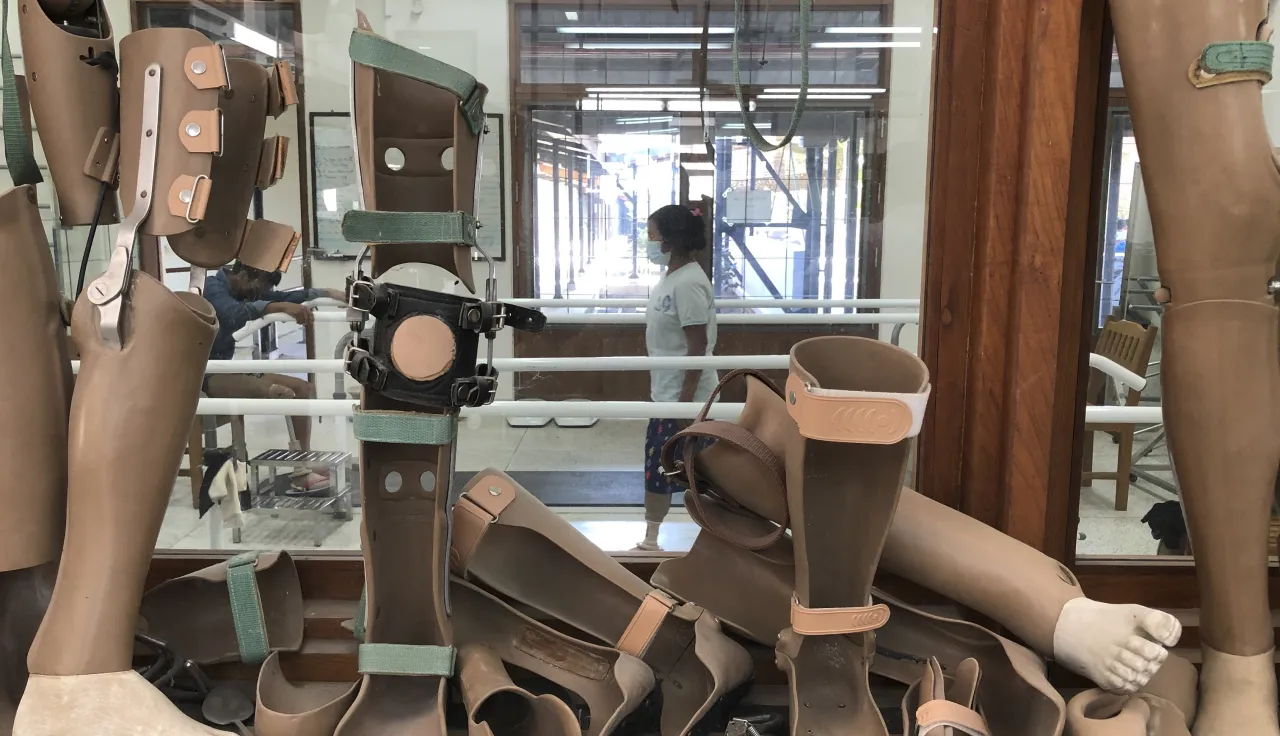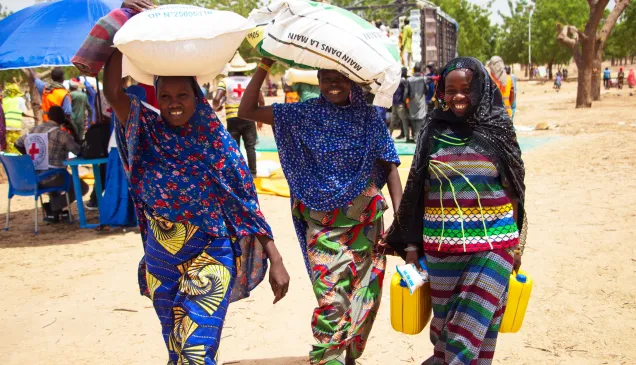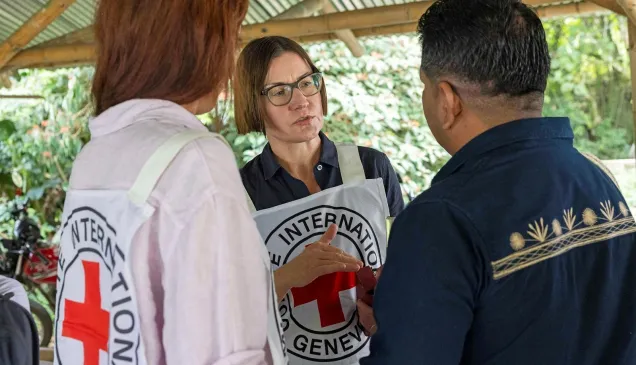Mr President,
Excellencies,
Ladies and Gentlemen,
It is a great privilege to address you today at the opening of the 20th Meeting of the States Parties to the Anti-Personnel Mine Ban Convention.
This year we mark the 25th anniversary of the Convention's adoption in 1997. The global campaign calling for this comprehensive ban on the use, stockpiling, production and transfer of anti-personnel mines is one of the major humanitarian initiatives of the last three decades.
The International Committee of the Red Cross (ICRC) was at the forefront of that campaign from 1994 onwards. The medical staff in our field hospitals around the world had, since the 1950s, been documenting the horrific impact of anti-personnel mines, particularly on civilians, calling it an "epidemic" of death and injury. When the Convention was adopted 25 years ago, the ICRC's President, Cornelio Sommaruga, stood before this gathering, and said:
Nothing could contain this movement, especially once the international conscience understood anti-personnel mines to be an abomination.
Since its entry into force in 1999, the Convention has helped significantly reduce annual civilian casualties and release vast contaminated land for productive use through mine clearance.
Although 2025 was set as the aspirational deadline for achieving a mine free world, we still have a long way to go. To overcome the remaining obstacles, we must build on what we have achieved and learned over the past 25 years, and we must do it together.
- The use of anti-personnel mines by anyone, under any circumstances, must be condemned. New uses of anti-personnel mines continue to injure and kill civilians and destroy their livelihoods. According to the Landmine Monitor 2022 report, just in the past year, there have been multiple reports of use of anti personnel mines – both manufactured and of an improvised nature – in at least six contexts: the Central African Republic, Colombia, the Democratic Republic of the Congo, India, Myanmar and Ukraine. We urge those that continue to use anti-personnel mines to cease immediately.
- Redoubled efforts are required to promote universal adherence to the Convention and its norms. There has been no new State Party in the last five years. We call on the 33 States that have not yet done so to join the Convention without delay. We urge all States and parties to armed conflicts to renounce using, producing, transferring and stockpiling anti-personnel mines.
- Mine clearance must be accelerated. We are concerned that, 25 years after the Convention's adoption, 34 States Parties – including some of the most mine-affected in the world – have not yet finished fulfilling their mine clearance obligations, and many are not fully on track to meet their clearance deadlines.
- Full compliance with the Convention by all States Parties must be ensured. States Parties must investigate allegations of anti personnel mine use in their territory and take measures to prosecute and punish those responsible. Non-compliance with treaty deadlines for clearance and stockpile destruction is concerning and must be duly addressed to preserve the Convention's integrity and credibility.
For our part, the ICRC will continue to engage with States and provide support to help ensure that the Convention is universally adhered to and implemented.
We will also, together with national and local authorities and our partners (principally in the International Red Cross and Red Crescent Movement), continue our work to prevent and address the effects of mines, cluster munitions and other explosive remnants of war. This includes awareness-raising, risk mitigation, physical rehabilitation, psychosocial support, and support for the social and economic inclusion of victims of mines. These efforts will need to be increased as humanitarian needs grow.
Esteemed colleagues, we owe it to the countless past and future victims of anti-personnel mines to redouble our efforts around the Convention. We must ensure that our legacy to future generations is a world that is ultimately free from these awful weapons.




